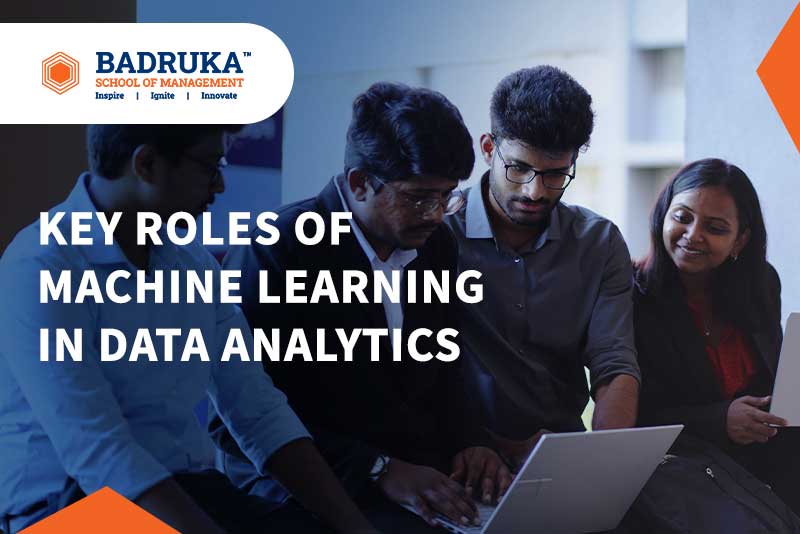In today’s fast-moving business world, data is one of the most valuable resources. Organisations that know how to use it effectively have a clear edge over their competitors. Every day, we generate around 2.5 quintillion bytes of data, and businesses are using it to predict trends, boost efficiency, and make better decisions.
At the heart of this data revolution is machine learning technology that helps transform raw information into valuable insights. Companies across industries use it to improve customer experience, cut costs, and stay ahead of the competition. It’s no longer just a bonus; it’s essential.
Example: Starbucks focuses on maximising customer lifetime value, which depends on three key factors: the average spend per visit, the number of visits per year, and how long a customer stays loyal.
By using data analytics, Starbucks improved all three. This gave it a stronger competitive edge than relying solely on coffee quality-because, let’s face it, we’ve all had better lattes elsewhere.
Starbucks x AI and Machine Learning
Starbucks uses data to personalise the customer experience. The app tracks order history and purchase patterns to suggest customised offers. For example, if you usually buy an espresso on Tuesdays but skipped last week, you might get a notification offering double rewards to bring you back. This increases the number of visits and average spending per visit.
Starbucks also relies on data to create new products. Items like non-dairy drinks, summer specials, and home-brew options came from analysing customer preferences and predicting trends.
Lastly, data helps Starbucks decide where to open new stores. Using artificial intelligence and machine learning, the company analyses factors like income levels, traffic, and competition to pick the most profitable locations. This strategy ensures Starbucks stays close to customers wherever demand exists.
For students preparing for a career in business, understanding how to learn machine learning can be a game-changer. Modern Post Graduate Diploma in Management (PGDM) programmes are designed to give future managers the skills they need to combine data insights with business strategy-turning them into leaders who can thrive in a digital world.
But how does machine learning really help businesses gain a competitive edge? And why should future managers care about it? Let’s break it down.
What is the role of Machine Learning in business?
Until recently, business decisions were largely based on instinct, experience, and traditional methods of analysis. But now, data drives decisions. Machine learning deep learning takes data analysis to the next level by identifying patterns and predicting outcomes-helping managers make smarter, faster decisions.
Here are some key areas where machine learning deep learning is making a difference:
1. Predicting future trends
Machine learning models can predict future trends and behaviour by analysing historical data. This helps companies stay ahead of the curve and plan more effectively.
For example, Coca-Cola uses artificial intelligence and machine learning to analyse customer feedback from multiple sources. It tracks changing preferences in real time and adjusts its marketing strategies to stay relevant and keep its customers engaged.
2. Improving customer experience
Customers now expect personalised experiences. Machine learning helps businesses deliver just that. Netflix and Amazon use machine learning to recommend content and products based on individual user behaviour. This improves customer satisfaction and boosts sales.
In fact, 80% of Netflix’s watched content is based on its machine learning technology-powered recommendations. It’s no wonder the platform has become a global favourite.
3. Enhancing efficiency and reducing costs
Machine learning technology doesn’t just improve customer experience; it also streamlines internal processes. Logistics companies use it to optimise delivery routes and reduce fuel consumption, while manufacturers apply predictive maintenance to avoid equipment failure and reduce downtime.
4. Detecting fraud and managing risk
In the finance sector, machine learning plays a crucial role in fraud detection and risk management. Traditional systems aren’t quick or reliable enough to catch every suspicious transaction. Artificial intelligence and machine learning can analyse huge amounts of data in real time and spot unusual patterns far more accurately.
Why do future managers need Machine Learning skills?
Machine learning deep learning might sound technical, but it’s not just for data scientists. Business leaders need to understand how to use these tools to make informed decisions. Knowing how to turn data into actionable insights will give future managers a significant advantage.
A strong PGDM programme combines core management subjects-like Finance, Marketing, and Strategy-with modern fields such as Data Analytics, Digital Technologies, and machine learning technology. This mix of skills helps students become business professionals who can confidently lead in a data-driven world.
Key Features of a modern management programme:
- Interdisciplinary learning: Courses combine business fundamentals with subjects like digital businesses, design thinking, and entrepreneurship.
- Real-world application: Students work on real projects, applying machine learning to solve business problems.
- Industry-relevant skills: Exposure to the latest technologies prepares students for real-world challenges.
- Holistic development: Along with technical skills, programmes focus on building critical thinking, communication, and leadership abilities.
How can data-savvy managers drive change?
Managers who can interpret data and apply machine learning technology insights have a powerful impact on their organisations. Here are some examples of how data-driven managers improve business outcomes:
- In marketing: Machine learning deep learning helps marketers predict customer behaviour, optimise campaigns, and improve return on investment.
- In finance: Risk managers use AI machine learning to assess credit risk and detect fraud, while investment managers use predictive models to identify market opportunities.
- In operations: Supply chain managers use machine learning to forecast demand, manage inventory, and improve overall efficiency.
- In Human Resources: HR professionals use machine learning technology to predict employee performance, improve hiring decisions, and reduce staff turnover.
Today’s businesses want leaders who can combine strategic thinking with data insights. They’re looking for professionals who can make decisions based on evidence, not just intuition.
Management education for real-world success
A modern PGDM programme offers much more than classroom learning. It focuses on giving students hands-on experience through:
These opportunities prepare students for the real challenges they’ll face in the workplace. They also help students build a network of valuable industry contacts.
What are the essential skills for a data-driven future?
If you’re aiming for a career in business, developing these skills will help you stand out:
- Data literacy: Understanding how to read, interpret, and use data.
- Strategic thinking: Connecting data insights with business goals.
- Leadership and communication: Explaining complex ideas clearly to different audiences.
- Adaptability and continuous learning: Staying up to date with the latest tools and techniques in machine learning and analytics.
The future of business belongs to those who can adapt and innovate. By combining business knowledge with machine learning skills, you can become a leader who’s ready for whatever comes next.
Gaining a competitive edge, today!
Learn machine learning isn’t a passing trend. It’s already transforming industries and redefining careers. If you want to stay competitive, you must learn how to use it to your advantage. The right PGDM programme can give you that edge. By learning how to combine data insights with business strategy, you’ll be ready to lead in today’s fast-changing business world.
So, ask yourself: Am I ready to lead with data? If the answer is yes, now is the time to take the next step in your career.
Equip yourself with the skills that will define the future of business.







